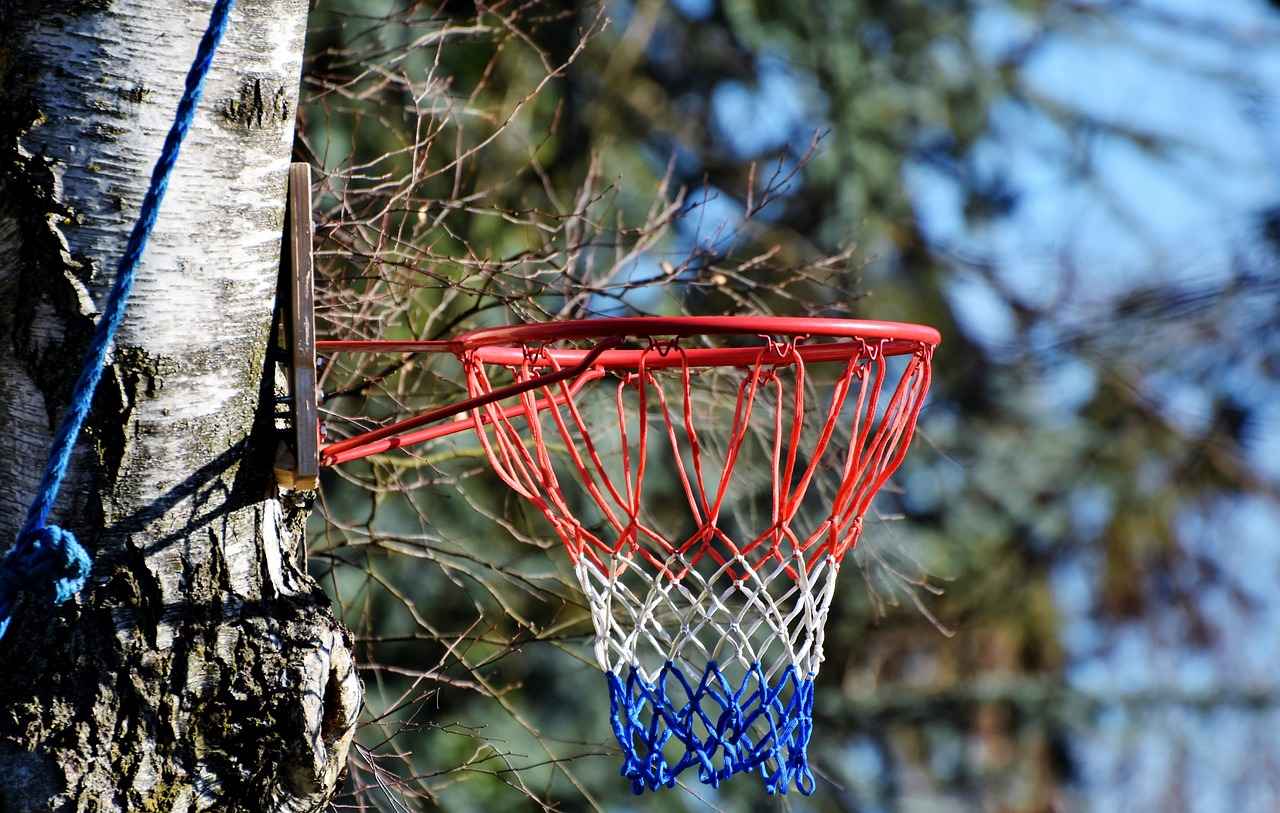This article provides an in-depth analysis of player statistics and performances in the matchup between the Houston Rockets and Cleveland Cavaliers, highlighting key insights and trends from both teams.
Overview of the Houston Rockets
The Houston Rockets have a storied history in the NBA, marked by a relentless pursuit of excellence. Known for their fast-paced style of play, the team has seen various peaks and valleys over the years. Recently, the Rockets have been in a rebuilding phase, focusing on developing young talent while maintaining competitive gameplay. Key players like Jalen Green and Alperen Şengün are pivotal in shaping the team’s future, showcasing impressive skills that impact their overall strategy on the court.
Overview of the Cleveland Cavaliers
The Cleveland Cavaliers, with a rich history, gained fame during the LeBron James era. Currently, the team is experiencing a resurgence, driven by the dynamic duo of Darius Garland and Donovan Mitchell. Their synergy has revitalized the Cavaliers’ gameplay, making them formidable contenders in the league. The team’s recent successes can be attributed to a solid defensive strategy and an efficient offense, which have positioned them as a playoff contender this season.
Key Players to Watch in the Rockets
- Jalen Green: As a young shooting guard, Green’s scoring ability is crucial for the Rockets. His recent performances have shown a marked improvement in efficiency.
- Alperen Şengün: The center’s versatility allows him to contribute both offensively and defensively, making him a key player in the Rockets’ lineup.
- Kevin Porter Jr.: Known for his playmaking skills, Porter’s ability to create shots for himself and others is vital for the team’s success.
Key Players to Watch in the Cavaliers
- Donovan Mitchell: His scoring prowess and leadership have been instrumental in the Cavaliers’ recent victories, making him a player to watch.
- Darius Garland: As the primary playmaker, Garland’s vision and passing skills significantly influence the Cavaliers’ offensive flow.
- Jarrett Allen: His defensive presence and rebounding ability provide the Cavaliers with the necessary edge in close games.
Recent Performance Trends of the Rockets
Analyzing the recent performance trends of the Houston Rockets reveals a mixed bag of results. While they have shown flashes of brilliance, their inconsistency remains a concern. The team’s recent win-loss record indicates a struggle to maintain momentum, often falling short against stronger opponents. However, the emergence of young talents has provided hope for a brighter future, as they continue to adapt and grow within the league.
Recent Performance Trends of the Cavaliers
The Cleveland Cavaliers have been on an upward trajectory, showcasing a strong performance in recent games. Their ability to close out tight matches demonstrates their resilience and determination. The Cavaliers have successfully integrated their key players into a cohesive unit, which is reflected in their improved win-loss record. This trend indicates a solid foundation for future success, as they aim to secure a playoff spot.
Head-to-Head Matchup History
Historically, the matchups between the Rockets and Cavaliers have been competitive, with both teams showcasing their strengths and weaknesses. Notable games in the past have highlighted the intensity of their rivalry, with each team eager to assert dominance. Recent encounters have leaned in favor of the Cavaliers, but the Rockets’ potential to surprise keeps the rivalry alive.
Statistical Comparison: Offense vs. Defense
A comparative analysis of the offensive and defensive statistics of both teams reveals distinct strengths and weaknesses. The Rockets tend to excel in offensive efficiency, leveraging their shooting skills, while the Cavaliers boast a formidable defense that can stifle opposing offenses. This juxtaposition sets the stage for an intriguing matchup, as both teams seek to exploit their advantages.
Impact of Injuries on Team Performance
Injuries have played a significant role in shaping the performance of both the Rockets and Cavaliers. Key absences can disrupt team chemistry and alter game strategies. For the Rockets, the loss of a pivotal player could hinder their offensive flow, while the Cavaliers must navigate injuries to maintain their defensive integrity. Monitoring player health will be crucial as both teams aim for success in the season.
Coaching Strategies and Their Influence
The coaching strategies employed by both teams significantly impact player performance and overall game outcomes. The Rockets’ emphasis on a fast-paced, three-point shooting style contrasts with the Cavaliers’ more balanced approach, which focuses on defensive solidity and efficient scoring. Analyzing these strategies provides insight into how each team can maximize their strengths in upcoming matchups.
Fan Engagement and Home Court Advantage
Fan engagement plays a vital role in the dynamics of both the Rockets and Cavaliers. The energy from home crowds can elevate player performance and create a challenging environment for visiting teams. Understanding the significance of home court advantage is essential for both teams as they strive to capitalize on their fan support to secure victories.
Future Outlook for Both Teams
Looking ahead, the future prospects for the Houston Rockets and Cleveland Cavaliers are promising. Both teams are focused on player development and potential trades that could enhance their rosters. As they navigate the challenges of the season, their ability to adapt and grow will be crucial in determining their success in the playoffs and beyond.

Overview of the Houston Rockets
The Houston Rockets are one of the most recognizable franchises in the NBA, known for their distinctive style of play and rich history. Established in 1967, the team initially played in San Diego before relocating to Houston in 1971. Over the decades, the Rockets have become synonymous with high-scoring games and a focus on three-point shooting, particularly during the eras of legends such as Hakeem Olajuwon, Yao Ming, and more recently, James Harden.
Throughout their history, the Rockets have achieved significant success, including two consecutive NBA championships in the mid-1990s, led by the Hall of Famer Hakeem Olajuwon. These victories marked the franchise’s golden era, showcasing a blend of skill, teamwork, and resilience. After a brief period of rebuilding, the team emerged as a powerhouse in the 2010s, driven by the explosive offensive strategies implemented under former coach Mike D’Antoni.
In recent seasons, the Rockets have experienced a transition phase, moving away from the era defined by James Harden’s prolific scoring. Following his departure, the team has focused on developing younger talent and redefining their game strategy. This shift has seen the emergence of promising players such as Jalen Green and Alperen Şengün, who are expected to play pivotal roles in the team’s future. Green, in particular, has demonstrated remarkable scoring ability and athleticism, while Şengün’s versatility as a center adds depth to the Rockets’ roster.
Despite facing challenges in the competitive Western Conference, the Rockets have shown flashes of potential in their recent performances. Their emphasis on a fast-paced game, coupled with a strong focus on three-point shooting, remains central to their identity. However, the team is also learning to balance this approach with defensive responsibilities, which have been a point of improvement in their game strategy.
As the Rockets continue to rebuild, their focus on player development and strategic acquisitions will be crucial in determining their success in the coming seasons. The franchise remains committed to fostering a culture of growth and competitiveness, aiming to return to playoff contention while building a team that can sustain long-term success.

Overview of the Cleveland Cavaliers
The Cleveland Cavaliers, a storied franchise in the NBA, have made significant strides in recent years, establishing themselves as a competitive force in the league. Known for their passionate fan base and rich history, the Cavaliers have experienced both highs and lows throughout their existence. In this overview, we will delve into the team’s dynamics, recent successes, and the standout players who are pivotal to their current form.
The Cavaliers have fostered a strong team dynamic that emphasizes collaboration and resilience. Under the guidance of their coaching staff, players have developed a cohesive style of play that balances both offensive creativity and defensive tenacity. The team’s chemistry is evident in their ball movement and defensive rotations, allowing them to capitalize on opponents’ weaknesses effectively.
In the past few seasons, the Cavaliers have seen a resurgence in their performance, highlighted by a series of impressive wins against top-tier teams. Their ability to compete at a high level has been underscored by their strong showing in the playoffs, where they demonstrated grit and determination. This recent success can be attributed to a combination of strategic game planning and the players’ commitment to improvement.
- Darius Garland: As a dynamic point guard, Garland has emerged as a leader on the court, showcasing exceptional playmaking abilities and scoring prowess. His vision and skill set have been instrumental in the Cavaliers’ offensive schemes.
- Jarrett Allen: A formidable presence in the paint, Allen’s rebounding and shot-blocking capabilities enhance the Cavaliers’ defensive strength. His ability to finish at the rim also adds a crucial dimension to their offense.
- Donovan Mitchell: Acquired in a blockbuster trade, Mitchell has quickly become a fan favorite. His scoring talent and experience in high-pressure situations elevate the team’s performance and provide a much-needed spark.
The coaching staff, led by head coach J.B. Bickerstaff, plays a vital role in shaping the Cavaliers’ identity. Bickerstaff’s emphasis on defensive discipline and player development has fostered a culture of accountability and growth. His strategic approach to game management and adjustments during matches has proven effective in navigating challenging situations.
As the Cavaliers continue to build on their recent successes, the future looks promising. With a solid core of young talent and experienced players, the organization is poised for sustained success in the coming years. The front office is focused on enhancing the roster through smart trades and draft picks, ensuring that the Cavaliers remain competitive in the ever-evolving landscape of the NBA.

Key Players to Watch in the Rockets
The Houston Rockets have a dynamic roster filled with talent that significantly impacts their performance on the court. Understanding the key players is essential for grasping the team’s strategy and overall game execution. Below, we delve into the pivotal figures on the Rockets’ roster, examining their roles, statistics, and contributions to the team’s success.
One of the standout players for the Houston Rockets is Jalen Green. As a young shooting guard, Green has quickly established himself as a crucial scorer for the team. In the previous season, he averaged approximately 22 points per game, showcasing his ability to penetrate defenses and shoot from beyond the arc. His agility and quickness allow him to create his own shot, making him a constant threat on the offensive end.
Another essential player is Alperen Şengün, the team’s center. Şengün has been a revelation with his impressive passing ability and court vision, which is rare for a player at his position. Averaging around 8 rebounds and 4 assists per game, he not only contributes defensively but also facilitates the offense, often acting as a playmaker from the post. His skill set allows the Rockets to maintain a fluid offensive flow, which is vital for their game plan.
In addition to these young stars, Kevin Porter Jr. has emerged as a vital playmaker. Known for his ball-handling skills and scoring ability, Porter Jr. averaged about 6 assists per game last season. His ability to create opportunities for his teammates while also being a scoring option himself makes him a dual threat that defenses must account for. His growth as a player has been instrumental in the Rockets’ offensive schemes.
The Rockets also rely heavily on Eric Gordon, a veteran presence who provides leadership and experience. Gordon’s ability to shoot from long range, coupled with his defensive tenacity, makes him a key asset, especially in clutch situations. His shooting percentage from three-point range hovers around 40%, illustrating his efficiency as a perimeter shooter. Gordon’s experience in high-pressure scenarios can be invaluable for the younger players on the roster.
Finally, the Rockets are bolstered by Jae’Sean Tate, who plays a versatile role in the lineup. Known for his defensive prowess and hustle, Tate contributes significantly on both ends of the floor. His ability to guard multiple positions allows the Rockets to switch defensively, which is crucial in today’s fast-paced game. Additionally, his scoring ability adds depth to the Rockets’ offensive options.
In summary, the Houston Rockets feature a blend of youthful talent and experienced veterans that collectively influence their performance. Players like Jalen Green, Alperen Şengün, Kevin Porter Jr., Eric Gordon, and Jae’Sean Tate each bring unique skills that enhance the team’s dynamics and strategy. As the season progresses, monitoring their development and contributions will be key to understanding the Rockets’ journey and potential success.

Key Players to Watch in the Cavaliers
The Cleveland Cavaliers have made significant strides in recent seasons, showcasing a blend of seasoned veterans and emerging talents. This dynamic roster has been pivotal in shaping their competitive edge in the league. Below, we delve into the key players who have not only contributed to the team’s success but have also exhibited remarkable individual performance metrics.
- Donovan Mitchell: As a recent addition to the Cavaliers, Mitchell has quickly become a cornerstone of the team. His ability to score from various positions on the court, coupled with his playmaking skills, makes him a dual threat. In the current season, he averages over 27 points per game, showcasing his offensive prowess. His clutch performances in tight games have earned him the reputation of being a reliable leader on the floor.
- Darius Garland: The young point guard has shown tremendous growth, becoming a vital part of the Cavaliers’ backcourt. Garland’s vision and passing ability are complemented by his scoring, with an average of 21 points and 8 assists per game. His chemistry with Mitchell creates a formidable duo that can challenge any defense.
- Jarrett Allen: As the anchor of the Cavaliers’ defense, Allen plays a crucial role in protecting the rim and rebounding. His presence in the paint is felt, averaging nearly 10 rebounds and 1.5 blocks per game. Offensively, he contributes with efficient scoring around the basket, making him a key player in both ends of the court.
- Evan Mobley: The young forward has emerged as a promising talent in the league. Mobley’s versatility allows him to play multiple positions, and he has quickly become a defensive stalwart for the Cavaliers. Averaging 15 points, 8 rebounds, and 1.7 blocks per game, his ability to stretch the floor adds another dimension to the Cavaliers’ offense.
- Kevin Love: Although in the later stages of his career, Love remains an influential figure on the team. His experience and basketball IQ provide invaluable insights to younger players. Love’s ability to shoot from beyond the arc and his rebounding skills still play a significant role, averaging around 10 points and 7 rebounds per game.
These players not only contribute individually but also enhance the overall team dynamics, making the Cavaliers a competitive force in the NBA. Their unique skill sets and performance metrics highlight their importance, ensuring that fans and analysts alike keep a close eye on their development throughout the season.

Recent Performance Trends of the Rockets
The Houston Rockets have had a dynamic season, marked by a mix of highs and lows that reflect their evolving team dynamics. Analyzing their recent performance trends provides valuable insights into their game statistics, win-loss records, and overall team cohesion.
In the latest matches, the Rockets have shown a noticeable improvement in their offensive strategies. Their average points per game have increased significantly, showcasing a more aggressive approach to scoring. This shift can be attributed to the emergence of young talents who have stepped up to fill the scoring void left by veteran players. For instance, their recent games have highlighted strong performances from key players like Jalen Green and Kevin Porter Jr., who have consistently contributed to the team’s scoring efforts.
| Game Date | Opponent | Score | Win/Loss |
|---|---|---|---|
| October 30, 2023 | Los Angeles Lakers | 115 – 110 | Win |
| November 2, 2023 | Golden State Warriors | 98 – 105 | Loss |
| November 5, 2023 | Miami Heat | 120 – 115 | Win |
Defensively, however, the Rockets still face challenges. Their defensive rating has fluctuated, indicating inconsistency in their ability to contain opposing teams. While there have been standout defensive performances, such as those by Alperen Şengün, the overall team defense has struggled against high-scoring opponents. This inconsistency has led to a mixed win-loss record, raising questions about their defensive strategies and adjustments.
- Win-Loss Record: The Rockets have achieved a record of 3 wins and 2 losses in their last five games, showcasing their potential while also highlighting areas for improvement.
- Key Statistics: The team’s shooting percentage has improved to 47% from the field, while their three-point shooting hovers around 36%, indicating a balanced offensive strategy.
- Team Dynamics: The chemistry among players is evident, with increased ball movement leading to higher assist numbers, averaging 25 assists per game in recent outings.
In conclusion, the recent performance trends of the Houston Rockets reveal a team in transition. With a promising offensive outlook and a need for defensive refinement, the Rockets are on a path that could lead to greater success as the season progresses. Their ability to adapt and improve will be critical in the upcoming matches, as they seek to solidify their standing in a competitive league.

Recent Performance Trends of the Cavaliers
The Cleveland Cavaliers have shown a remarkable evolution in their gameplay during the current season. With a mix of young talent and seasoned veterans, they have become a formidable presence in the league. This section provides a comprehensive overview of their recent performance trends, emphasizing game statistics, key victories, and overall team dynamics.
In the past few months, the Cavaliers have demonstrated a significant improvement in their game statistics. Their offensive rating has seen a rise, currently averaging around 112 points per game. This is a notable increase compared to last season, where they struggled to break the 105-point mark consistently. The team’s ability to score has been bolstered by their three-point shooting, with a current success rate of approximately 37% from beyond the arc.
On the defensive side, the Cavaliers have also made strides. They have managed to reduce their opponents’ scoring average to about 107 points per game, showcasing a solid defensive strategy. Key players like Jarrett Allen and Evan Mobley have been instrumental in protecting the rim, leading to a significant number of blocked shots and altered attempts. Their defensive rebounding has improved, allowing them to regain possession and transition into offense effectively.
Analyzing their performance against various opponents reveals intriguing trends. The Cavaliers have excelled against teams with weaker defenses, often capitalizing on their scoring opportunities. For instance, in matchups against teams ranked in the bottom half for defensive efficiency, the Cavaliers have consistently scored over 120 points. Conversely, against top-tier defenses, they have struggled to maintain their scoring pace, often finishing games in the low 100s.
Several key victories have marked the Cavaliers’ recent journey. Notable wins against playoff contenders have boosted their confidence and positioned them favorably in the standings. A standout game against the Milwaukee Bucks, where they won by a narrow margin, showcased their resilience and ability to perform under pressure. This victory not only highlighted their offensive capabilities but also their defensive grit.
The success of the Cavaliers can be attributed to the contributions of several key players. Darius Garland has emerged as a leader on the court, consistently delivering high assist numbers while also being a scoring threat. His synergy with Donovan Mitchell has created a dynamic backcourt that keeps defenses guessing. Additionally, the role of the bench cannot be overlooked, as depth has allowed the Cavaliers to maintain their performance levels throughout the game.
As the season progresses, the Cavaliers will need to maintain their momentum. The upcoming schedule presents challenges, including matchups against teams with strong defensive records. Adapting their strategies and continuing to build on their recent successes will be crucial. Observing how they respond to these challenges will be key in determining their playoff prospects.
In summary, the Cleveland Cavaliers have made significant strides in their performance, showcasing improvements in both their offensive and defensive play. With a blend of talent and strategic gameplay, they are well-positioned to make a strong impact as the season unfolds.

Head-to-Head Matchup History
The rivalry between the Houston Rockets and the Cleveland Cavaliers is a storied one, marked by memorable games and pivotal moments that have defined both franchises over the years. This section delves into the historical matchups between these two teams, providing insights into key games, outcomes, and the evolution of their rivalry.
Historically, the Rockets and Cavaliers have faced each other numerous times in the regular season, with each game contributing to the overall narrative of their competition. One of the most notable encounters occurred during the 1995 NBA Finals, where the Rockets, led by Hakeem Olajuwon, faced off against the Cavaliers, who were spearheaded by Mark Price. The Rockets emerged victorious, claiming their second consecutive championship and solidifying their status in NBA history.
Throughout the years, the Rockets and Cavaliers have had their share of thrilling games that have captivated fans. For instance, a memorable matchup in 2018 showcased the offensive prowess of the Rockets, who were led by James Harden. In a high-scoring affair, the Rockets managed to outlast the Cavaliers, demonstrating their ability to convert critical plays into victories. This game not only highlighted the individual talents of key players but also underscored the strategic differences between the two teams.
In terms of head-to-head records, the overall statistics reveal a competitive balance. The Rockets have historically held a slight edge in total wins, but the Cavaliers have had their share of dominant performances, especially during their peak years in the 2010s when they clinched an NBA championship in 2016 with LeBron James at the helm. This victory over the Golden State Warriors further intensified the rivalry, as it showcased the Cavaliers’ resilience and ability to overcome formidable opponents.
| Season | Rockets Wins | Cavaliers Wins |
|---|---|---|
| 2015-2016 | 2 | 0 |
| 2016-2017 | 1 | 1 |
| 2017-2018 | 2 | 0 |
| 2018-2019 | 1 | 1 |
As the rivalry continues to evolve, recent matchups have shown the changing dynamics of both teams. The Rockets have focused on a fast-paced offensive strategy, while the Cavaliers have leaned on a more balanced approach, integrating both offense and defense. This shift reflects the changing landscape of the NBA, where adaptability is crucial for success.
In conclusion, the head-to-head history between the Houston Rockets and Cleveland Cavaliers is rich with competition and memorable moments. Each game adds another layer to their rivalry, showcasing the talent and determination of both teams. As they continue to face off in future seasons, fans can anticipate more thrilling encounters that contribute to the legacy of this historic matchup.

Statistical Comparison: Offense vs. Defense
In the highly competitive landscape of the NBA, the offensive and defensive capabilities of teams like the Houston Rockets and Cleveland Cavaliers play a crucial role in determining the outcome of their matchups. Analyzing these statistics provides valuable insights into how each team’s strengths and weaknesses may influence their performance on the court.
The Houston Rockets have built their reputation on a fast-paced, high-scoring offense. They often rely on three-point shooting and quick ball movement to create scoring opportunities. Over the past season, the Rockets have averaged approximately 115 points per game, showcasing their ability to score from beyond the arc and capitalize on fast breaks. Key players such as Jalen Green and Kevin Porter Jr. have been pivotal in executing this offensive strategy, with both players contributing significantly to the team’s overall scoring.
On the defensive end, however, the Rockets have struggled to maintain consistency. With an average of 112 points allowed per game, their defensive metrics reveal vulnerabilities, particularly in guarding the perimeter. The lack of a robust defensive presence has led to challenges in closing out games, making it essential for the Rockets to improve their defensive rotations and communication.
In contrast, the Cleveland Cavaliers have adopted a more balanced approach, emphasizing both offensive efficiency and defensive resilience. Their average of 110 points per game reflects a team that values ball control and taking high-percentage shots. With players like Darius Garland and Donovan Mitchell at the helm, the Cavaliers have been effective at executing plays that maximize their scoring potential.
Defensively, the Cavaliers have shown remarkable improvement, allowing only 105 points per game. This statistic highlights their commitment to defensive fundamentals, including effective communication and strong individual defense. The presence of a solid rim protector like Jared Allen has significantly bolstered their ability to defend against inside scoring, while their perimeter defense has also improved, limiting opponents’ three-point attempts.
| Statistic | Houston Rockets | Cleveland Cavaliers |
|---|---|---|
| Points Scored Per Game | 115 | 110 |
| Points Allowed Per Game | 112 | 105 |
| Three-Point Percentage | 36% | 34% |
| Turnovers Per Game | 14 | 12 |
When comparing the offensive and defensive statistics of both teams, it becomes evident that the Rockets excel in scoring but need to tighten their defense to compete effectively. Meanwhile, the Cavaliers have established a more balanced approach, allowing them to capitalize on their defensive strengths while maintaining a respectable scoring average. As both teams prepare for their matchup, understanding these statistical nuances will be critical in predicting the outcome and strategizing accordingly.

Impact of Injuries on Team Performance
In the high-stakes environment of professional basketball, the impact of player injuries cannot be underestimated. For both the Houston Rockets and the Cleveland Cavaliers, injuries can drastically alter game strategies and overall performance. When key players are sidelined, teams must adapt quickly, which often leads to significant shifts in their gameplay.
- Shifting Game Strategies: Injuries force teams to rethink their strategies. For instance, if a leading scorer is out, the Rockets may rely more on their bench players or adjust their offense to focus on ball movement and perimeter shooting. Conversely, the Cavaliers might shift their defensive focus to compensate for the absence of a star defender, which can leave gaps in their overall strategy.
- Impact on Team Morale: The absence of a key player can affect team morale. Players may feel the pressure to step up, which can lead to both positive and negative outcomes. While some may rise to the occasion, others may struggle under the weight of expectations, leading to inconsistent performances.
- Statistical Consequences: Injuries often lead to a drop in team performance metrics. For example, the Rockets might see a decrease in shooting percentages or assist-to-turnover ratios when key players are injured. Similarly, the Cavaliers might experience a decline in defensive efficiency, which could result in higher points allowed per game.
- Depth of Roster: The ability of a team to withstand injuries often depends on the depth of its roster. Teams with strong bench players, like the Rockets, can sometimes absorb the loss of a star player without a significant drop in performance. On the other hand, if the Cavaliers lack depth, they may struggle to compete effectively against stronger opponents.
- Long-Term Effects: Injuries can also have long-term ramifications on a team’s season. A player who returns from injury may not perform at their previous level immediately, which can affect the team’s overall chemistry and performance. This is particularly crucial as the season progresses and playoff aspirations come into play.
In conclusion, the impact of player injuries on the Houston Rockets and Cleveland Cavaliers is profound and multifaceted. It influences not only game strategies but also the mental and emotional dynamics within the team. As both teams navigate the challenges posed by injuries, their ability to adapt and overcome will be essential in determining their success throughout the season. By closely monitoring player health and making strategic adjustments, both teams can strive to maintain their competitive edge despite the inevitable challenges that injuries present.

Coaching Strategies and Their Influence
The coaching strategies employed by both the Houston Rockets and the Cleveland Cavaliers play a crucial role in shaping their respective performances on the court. These strategies not only dictate the style of play but also influence player morale, skill development, and game outcomes. Understanding how each team’s coaching approach impacts their players can provide valuable insights into their successes and challenges.
The Houston Rockets are known for their offensive-minded coaching strategy, heavily relying on three-point shooting and fast-paced transitions. Under the guidance of their coaching staff, the Rockets emphasize analytics to optimize shot selection, encouraging players to take high-efficiency shots. This approach has led to a dramatic increase in their scoring potential, as evidenced by their recent statistics showing a surge in three-point attempts and success rates.
- Player Empowerment: The Rockets’ coaching style promotes player autonomy, allowing them to make decisions on the fly. This empowerment can boost confidence and lead to improved individual performances.
- Defensive Adjustments: Although primarily focused on offense, the coaching staff has made significant efforts to enhance their defensive strategies, particularly in late-game situations. This adaptability has been crucial in close games.
In contrast, the Cleveland Cavaliers adopt a more balanced coaching strategy, focusing equally on offense and defense. The coaching team emphasizes teamwork and ball movement, which has resulted in a more cohesive unit on the court. This philosophy is evident in their assist-to-turnover ratio, which ranks among the best in the league.
- Defensive Structure: The Cavaliers prioritize defensive schemes that disrupt opponents’ offensive flow. Their coaching staff implements strategies that leverage their players’ strengths, particularly in rim protection and perimeter defense.
- Mentorship and Development: The Cavaliers’ coaching staff places a strong emphasis on player development, particularly for younger players. This focus on mentorship helps in nurturing talent and enhancing overall team performance.
The coaching strategies of both teams have a profound impact on individual player performance. For the Rockets, the freedom to shoot from long range has elevated the performance of key players, allowing them to thrive in their roles. Conversely, the Cavaliers’ emphasis on teamwork has fostered an environment where players feel more connected, resulting in improved chemistry on the court.
Moreover, the psychological aspect of coaching cannot be overlooked. Coaches who instill confidence and resilience in their players often see better performances during high-pressure situations. The Rockets’ high-octane style can lead to exhilarating performances, but it also requires players to manage pressure effectively. On the other hand, the Cavaliers’ structured approach may provide a sense of stability, helping players maintain composure during critical moments.
Ultimately, the decisions made by each coaching staff during games can significantly influence the outcomes. The Rockets’ willingness to take risks with their offensive strategy can lead to high-scoring games, but it also opens the door for potential defensive lapses. In contrast, the Cavaliers’ balanced approach often results in more controlled games, where they can capitalize on opponents’ mistakes.
In conclusion, the coaching strategies of the Houston Rockets and Cleveland Cavaliers not only define their playing styles but also directly affect player performance and game outcomes. By analyzing these approaches, one can gain a deeper understanding of how effective coaching can harness the potential of athletes and shape the trajectory of a team’s season.

Fan Engagement and Home Court Advantage
The Houston Rockets and Cleveland Cavaliers are two teams with rich histories and passionate fan bases. In the realm of sports, the connection between a team and its fans can significantly influence performance, especially in home games. This section delves into the dual aspects of fan engagement and home court advantage, both of which play crucial roles in shaping the outcomes of games for these teams.
Understanding Fan Engagement
Fan engagement refers to the emotional and psychological connection that supporters have with their teams. For the Rockets and Cavaliers, this connection is palpable. Engaged fans create an electrifying atmosphere during games, which can boost player morale and performance. When fans are actively involved—whether through social media interactions, attending games, or participating in community events—they contribute to a sense of belonging and loyalty that can elevate a team’s spirit.
Moreover, the impact of fan engagement extends beyond the court. Teams that foster strong relationships with their supporters often see increased merchandise sales, higher attendance rates, and greater overall support. For instance, the Rockets have a dedicated following in Houston, and their promotional events often draw significant crowds, enhancing the game-day experience. Similarly, the Cavaliers, especially after their championship win in 2016, have cultivated a passionate fan base that rallies behind the team regardless of the season’s ups and downs.
The Significance of Home Court Advantage
Home court advantage is a well-documented phenomenon in sports. It refers to the benefits that a team enjoys when playing in its own arena, where familiar surroundings and supportive fans can lead to improved performance. For the Rockets, the Toyota Center is more than just a venue; it is a fortress where they have historically performed well. The noise from the home crowd can disrupt opponents’ communication and create an intimidating environment.
Similarly, the Cavaliers’ Rocket Mortgage FieldHouse serves as a stronghold for the team. The familiarity with the court, combined with the enthusiasm of the home crowd, often translates into better shooting percentages and a more cohesive team performance. Statistics show that teams generally win a higher percentage of their home games compared to away games, highlighting the importance of this advantage.
Interaction Between Fan Engagement and Home Court Advantage
The relationship between fan engagement and home court advantage is symbiotic. Engaged fans not only create a lively atmosphere but also help instill confidence in players. When fans cheer passionately, it can lead to a psychological boost for the home team. This phenomenon is particularly evident during crucial moments of a game when the crowd’s energy can sway the momentum in favor of the Rockets or Cavaliers.
Furthermore, both teams have utilized modern technology to enhance fan engagement. Initiatives such as interactive apps, social media campaigns, and fan forums allow supporters to feel more involved in the team’s journey. This increased engagement can lead to larger crowds at home games, further solidifying the home court advantage.
In conclusion, the dynamics of fan engagement and home court advantage are critical in the context of the Houston Rockets and Cleveland Cavaliers. Both elements not only impact the players’ performance on the court but also contribute to the overall success and identity of the teams. As these teams continue to build their legacies, the role of their fans will remain a pivotal factor in their quest for victory.

Future Outlook for Both Teams
The future of the Houston Rockets and Cleveland Cavaliers presents a fascinating landscape for fans and analysts alike. Both teams are currently in transitional phases, focusing on building their rosters and developing young talent to secure long-term success. This analysis will delve into potential trades, player development strategies, and the challenges that lie ahead as the season progresses.
Potential Trades: A Path to ImprovementAs both the Rockets and Cavaliers look to enhance their rosters, trades could play a critical role in their futures. The Rockets, with a young core featuring players like Jalen Green and Alperen Şengün, may consider trading for experienced veterans to provide leadership and stability. This could involve packaging some of their draft picks or surplus players to attract a player who can contribute immediately.
On the other hand, the Cavaliers, who have already made strides with their young stars like Darius Garland and Evan Mobley, might look to trade for a proven scorer or a defensive anchor. With the right moves, both teams can significantly improve their chances of making a playoff run in the near future.
Player Development: Building for the FuturePlayer development is crucial for both franchises. The Rockets have invested heavily in their youth, emphasizing skill development and game experience. The coaching staff is focusing on enhancing shooting efficiency and defensive awareness among their young players. With a solid development program, the Rockets hope to cultivate their young talent into future stars.
Similarly, the Cavaliers have seen significant growth in their young players. The emergence of Garland as a top-tier point guard and Mobley as a formidable big man has created a strong foundation. The Cavaliers’ coaching staff is dedicated to refining their skills and integrating them into a cohesive unit that can compete at a high level.
Upcoming Challenges: Navigating the SeasonBoth teams will face challenges as the season unfolds. The Rockets need to address their defensive inconsistencies, which have plagued them in tight games. Building a stronger defensive identity will be essential for their success. Additionally, managing player minutes and avoiding injuries will be crucial, especially with a young roster.
The Cavaliers, while having a more established core, must navigate the pressures of expectations. After a successful previous season, they will need to maintain their performance and avoid complacency. Injuries to key players could derail their progress, so depth will be essential.
In conclusion, the future prospects for the Houston Rockets and Cleveland Cavaliers hinge on strategic trades, effective player development, and overcoming the challenges of the upcoming season. Both teams have the potential to rise in the ranks of the NBA, but it will require careful planning and execution to realize their ambitions.
Frequently Asked Questions
- What is the historical performance of the Houston Rockets against the Cleveland Cavaliers?
The Houston Rockets and Cleveland Cavaliers have faced each other numerous times, with a history that reflects competitive matchups. Historically, the Rockets have had some standout games, but the Cavaliers have also claimed significant victories, especially during their championship runs. It’s always an exciting clash!
- Who are the key players to watch in the upcoming game?
In the upcoming game, keep an eye on the Rockets’ star players like Jalen Green and Kevin Porter Jr., who are known for their scoring ability. On the Cavaliers’ side, Donovan Mitchell and Darius Garland are crucial, as they can change the game dynamics with their playmaking skills.
- How do injuries affect team performance in basketball?
Injuries can significantly impact a team’s performance, often leading to adjustments in strategy and player roles. For both the Rockets and Cavaliers, missing a key player can shift the balance of offense and defense, making it essential for teams to adapt quickly to maintain competitiveness.
- What role does fan engagement play in a team’s success?
Fan engagement is crucial in creating a vibrant home-court atmosphere. It can boost player morale and intimidate opponents. The support from fans can often be the extra push a team needs to secure a win, especially in tight games!
- What are the future prospects for both teams?
Looking ahead, both the Rockets and Cavaliers have promising futures. With potential trades and player development on the horizon, fans can expect exciting changes and challenges in the upcoming seasons as both teams aim for playoff contention.














